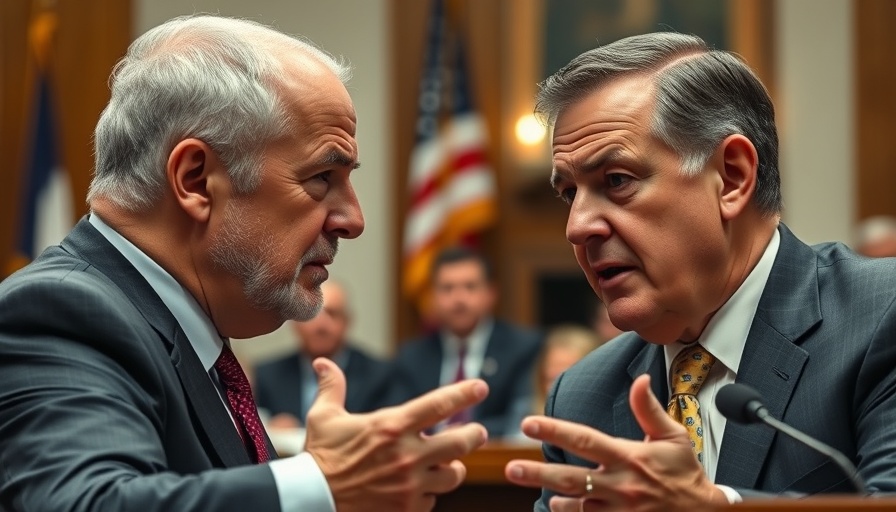
President’s Unprecedented Trade Moves Spark Global Fear
In a move that has left economists and global leaders scrambling, President Donald Trump announced sweeping tariffs on almost every nation, declaring a "national emergency" that he claims threatens U.S. security and way of life. The announcement came at a time when markets were already on shaky ground, and the immediate aftermath has led to a significant drop in stock market futures both domestically and internationally. The fear index, known technically as the VIX, surged to extreme levels, showcasing widespread panic among investors.
Trump's Timing Raises Eyebrows
Despite the chaos this trade move has unleashed, Trump’s planned attendance at a golf tournament in Florida has drawn significant criticism. Many are questioning the timing of his retreat to leisure during a national emergency. Critics have been quick to point out the apparent disconnect between the President’s actions and the severity of the economic climate. CNN's Brian Stelter remarked on the frightening graphics presented by CNBC depicting the global market’s sell-off, adding to the skepticism surrounding Trump's decision-making process.
Political Repercussions and Internal Struggles
As Trump heads to his Trump National Doral Golf Club for a LIV dinner and golf tournament, the House of Representatives is experiencing a shutdown due to internal conflicts among Republican lawmakers. This highlights a troubling trend: while the country faces an economic crisis, the legislative branch is locked in turmoil. Critics in the political arena have pointed to Trump's focus on leisure over leadership, suggesting that the absence of action in the Oval Office could exacerbate the economic downturn.
Implications for Global Economics
The implications of Trump's tariffs are profound and widespread. Financial experts have labeled the measures as “worse than the worst-case scenario.” Economists fear that the aggressive protectionist measures could lead to reduced world trade and economic growth, potentially pushing the economy towards recession. The Wall Street Journal has echoed these sentiments, warning that the consequences of such tariffs could be severe. Stephanie Ruhle, a respected figure in finance reporting, criticized Trump by stating, "The voters who leaned toward Trump did so for lowered inflation, not for tariff hikes that will likely raise prices further."
Calls for Leadership Amid Economic Chaos
As global leaders reach out to Trump in an attempt to mitigate what could develop into a full-blown global trade war, the absence of presidential leadership in those discussions is alarming. Many civil rights and immigration attorneys, along with other professionals watching closely, emphasize the importance of stable leadership in turbulent times. The legal community, in particular, understands how economic policy can directly impact immigration and labor rights in this interconnected landscape.
Looking Ahead: What’s Next for the Economy?
Experts are now left pondering potential future scenarios. With the current trajectory, fears of escalating trade wars loom large. If the tariffs are not rolled back swiftly, it could lead to significant ramifications for U.S. businesses and consumers alike. Legal practitioners must remain vigilant as policy shifts may create immediate challenges for immigrants and labor rights, areas deeply intertwined with economic fluctuations.
In these troubling times, it’s crucial for all stakeholders, especially those in the legal field, to stay informed and participate in dialogues that address these critical changes. Whether through advocacy, addressing the implications of tariffs on labor rights, or understanding new immigration policies, the civil rights and immigration sectors must be proactive in their responses.
 Add Row
Add Row  Add
Add 

 Add Row
Add Row  Add Element
Add Element 




Write A Comment